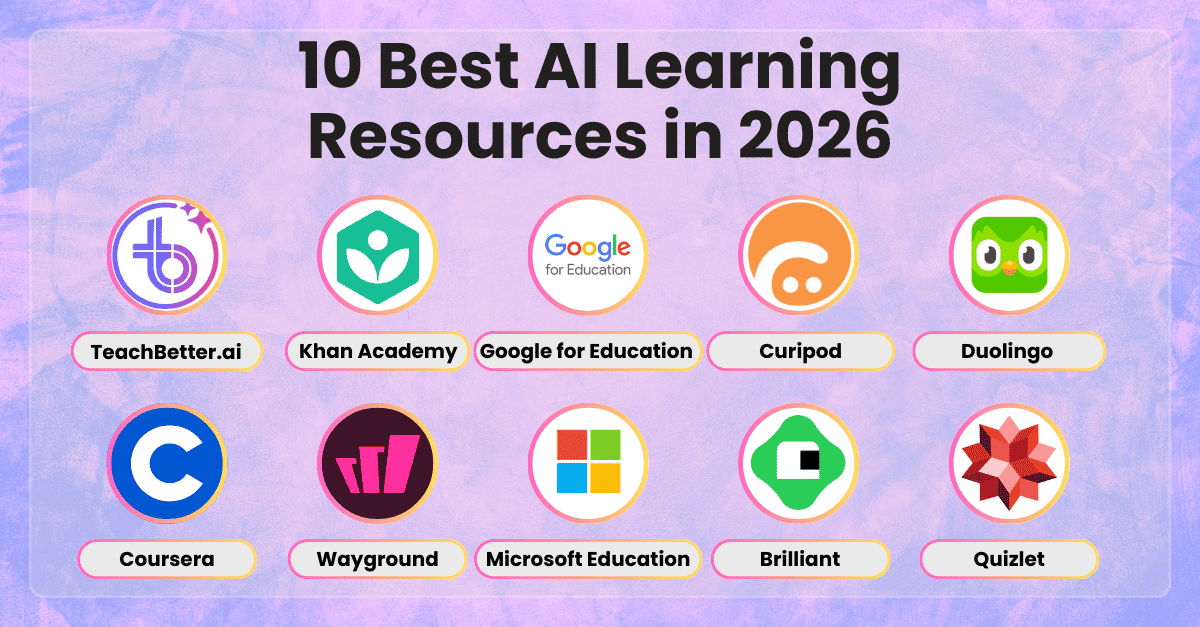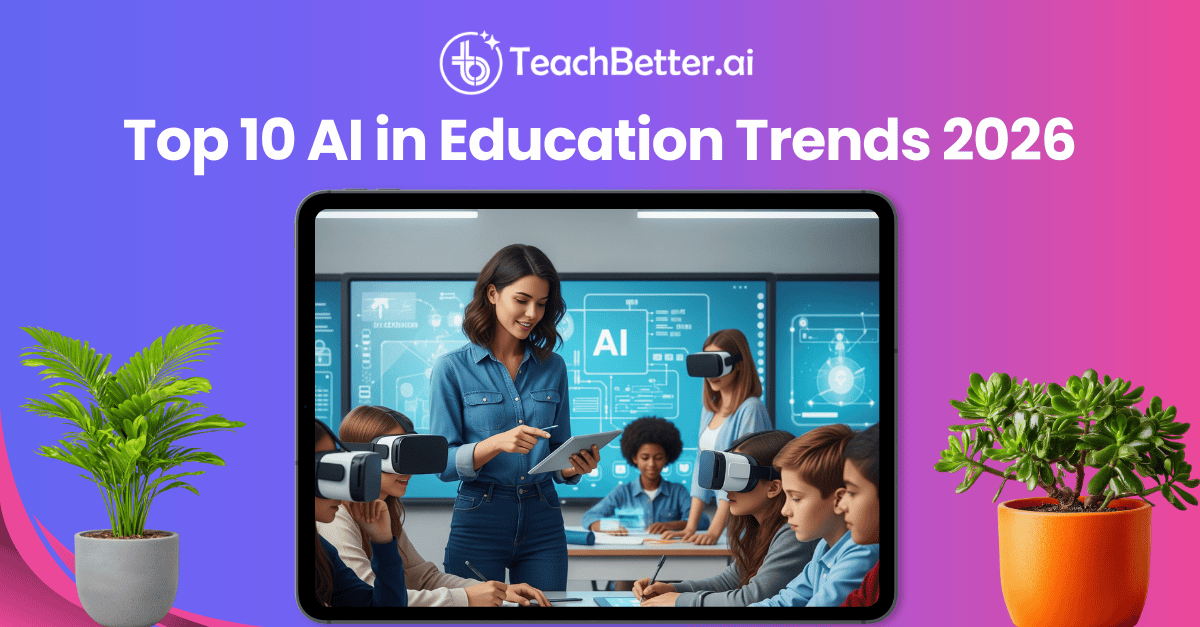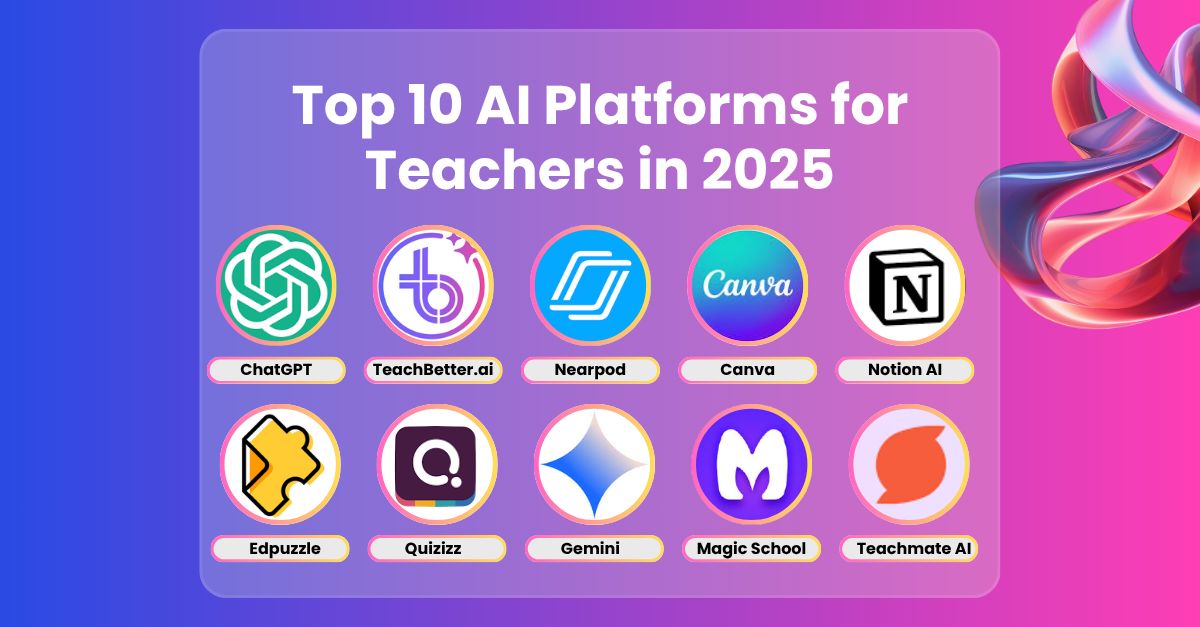The Knowledge Hub
Why and How Parents Can Embrace Safe AI for Better Education of Their Children
TeachBetter.ai
|
2 February, 2025

Artificial Intelligence (AI) is revolutionizing education, offering tools and solutions that were unimaginable a decade ago. From personalized learning paths to interactive simulations, AI is reshaping how children learn and how parents support them. However, like any transformative technology, the rise of AI in education comes with its share of questions and concerns. For parents, understanding how AI can enhance their child’s education and ensuring its safe adoption are vital steps toward embracing this technology.
This blog explores the transformative potential of AI in education, highlights the precautions parents should take to ensure safety, and provides actionable insights on how to integrate AI into their children’s learning journey effectively.
The Transformative Role of AI in Education
AI is not just a buzzword; it’s a game-changer in education. It offers a range of benefits, from personalized learning experiences to tools that support children with disabilities. A 2023 report by HolonIQ revealed that AI in education is expected to grow into a $25 billion industry by 2027, indicating its rapid adoption and transformative potential. Here are some key ways AI is reshaping education:
- Personalized Learning: AI adapts lessons to the pace, style, and level of each student, making learning more effective and engaging.
- Real-Time Feedback: AI-powered platforms provide instant feedback to students, helping them identify and improve their weak areas quickly.
- Global Accessibility: AI tools are breaking barriers for children in underserved areas or those with language and physical challenges, providing equal learning opportunities.
Despite these benefits, parents often worry about the safety, privacy, and ethical aspects of using AI in their children’s education.
Why Parents Should Embrace AI for Education
AI offers several benefits that address critical challenges in traditional education systems. Here’s why parents should consider incorporating AI tools into their children’s learning routine:
1. Enhanced Learning Experiences
AI makes learning more dynamic and tailored to individual needs.
- Personalized learning ensures that each child learns at their own pace, reducing frustration and fostering curiosity.
- Interactive tools like simulations and gamified lessons make complex topics easier to understand and enjoyable to learn.
2. Bridging Learning Gaps
AI ensures no child is left behind.
- Language translation tools enable children from non-English-speaking families to access quality resources in their native languages.
- Accessibility features, such as text-to-speech or visual aids, support children with disabilities.
3. Encouraging Parental Involvement
Parents can stay connected with their child’s progress.
- AI tools provide dashboards that help parents monitor academic performance and areas for improvement.
- Parents can access AI-powered insights to better understand their child’s needs and assist with homework or projects.
4. Preparing for the Future
In a world driven by technology, understanding AI is a critical skill.
- Familiarizing children with AI tools equips them with skills that are essential for future careers.
- Parents who embrace AI for their children help foster digital literacy and problem-solving skills.
How Parents Can Ensure AI Is Used Safely
As with any technology, safety and responsible use are paramount. Parents play a crucial role in ensuring that AI is used ethically and effectively. Here are some guidelines:
1. Research Before Adoption
- Choose AI tools with robust data privacy policies and educational certifications.
- Read reviews and explore whether the tool aligns with your child’s specific needs.
2. Monitor Usage
- Regularly check the content your child interacts with and set boundaries for screen time.
- Stay involved in how AI tools are being used to ensure a balanced mix of technology and traditional learning methods.
3. Educate Your Child
- Teach children about data safety, including what information they should never share online.
- Encourage them to use AI tools as learning aids, not as shortcuts to bypass effort.
4. Advocate for Ethical Use
- Ensure AI tools are used to enhance creativity and critical thinking, rather than replace foundational skills.
- Discuss with educators and schools about how AI is being integrated into the curriculum.
The Future of Education with AI: Opportunities for Parents
AI is not just a tool for schools and teachers; it’s a valuable resource for parents to actively participate in their children’s education. By adopting safe and reliable AI tools, parents can:
- Access learning resources tailored to their child’s unique needs.
- Gain real-time insights into academic progress, enabling timely intervention and support.
- Support children in exploring subjects or skills that interest them but may not be covered in school curricula.
A survey by Education Technology Insights found that 76% of parents believe AI can improve their involvement in their children’s education, highlighting its potential to bridge the gap between home and school learning environments.
Conclusion: Partnering with AI for a Better Future
AI in education is not a passing trend but a transformative force that can redefine how children learn and grow. By embracing AI responsibly, parents can ensure their children have access to personalized, equitable, and engaging learning experiences. It’s an opportunity to prepare the next generation for a future where technology and creativity coexist harmoniously.
At TeachBetter.ai, we are dedicated to building safe AI-powered tools that empower educators, students, and parents alike. Together, let’s embrace AI to create a brighter, smarter, and more inclusive future for education.
To stay updated on our latest developments, follow us on LinkedIn: https://www.linkedin.com/company/teachbetter/


